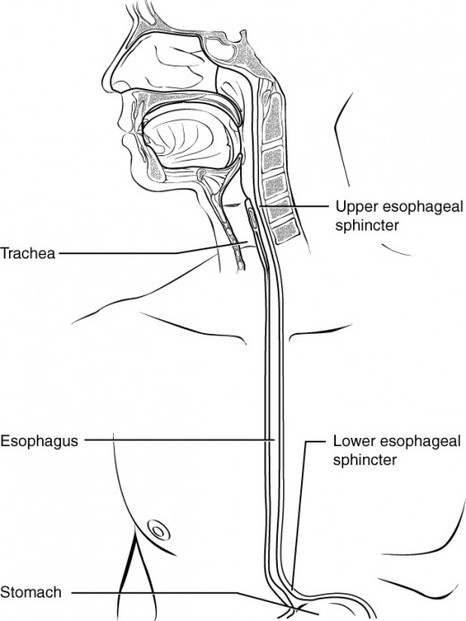Dysphagia is most common among babies, older people and people with neurological disorders. There can also be various other physical reasons for it, including things as serious as cancer or cancer treatment.
Having a stroke or spinal cord injury can cause the muscles and nerves that help food through the throat to work inadequately and, therefore, not move food through the throat down into the stomach. Neurological conditions (as noted briefly above) can also cause this problem; these conditions include muscular dystrophy, multiple sclerosis and parkinson's disease.
Problems with the immune system can also cause difficulty swallowing, such as polymyositis and dermatomyositus, which cause inflammation and weakness of the esophagus.
Esophageal spasms can occur, too, that cause the muscles of the esophagus to squeeze and not allow food to pass through.
Pharyngeal diverticula occurs when a sac forms in the throat above the esophagus that blocks food from passing through.
Achalasia occurs when the lower esophageal muscle (sphincter) fails to relax to let food enter the stomach, in which case food might come back up to the throat. This often happens when the muscles in the wall of the esophagus are weak.
Various growths, scars or tumors on the esophagus could cause trouble swallowing. Tumors on the esophagus could be but are not necessarily cancer. Also, masses outside the esophagus, like on a vertebrae, could cause stricture of the esophagus.
Scleroderma occurs when the tissues of the esophagus narrow and harden and could hamper your ability to swallow and for food to pass to the stomach.
Eosinophillic esophagitis is another possibility as far as why you might have difficulty swallowing food, and it is the result of there being too many cells in the esophagus. This can actually be caused by an allergy.
Radiation treatments also can inflame and scar the esophagus, making it difficult for food to pass through to the stomach.





 Why Are My Veins So Visible?on 07/15/2020
Why Are My Veins So Visible?on 07/15/2020
 Should Female Backpackers Go on their Own? Why or Why Not?on 07/15/2020
Should Female Backpackers Go on their Own? Why or Why Not?on 07/15/2020
 Why Do BPD Women Lie?on 07/15/2020
Why Do BPD Women Lie?on 07/15/2020
 Why Do My Joints Hurt?on 07/15/2020
Why Do My Joints Hurt?on 07/15/2020


Comments